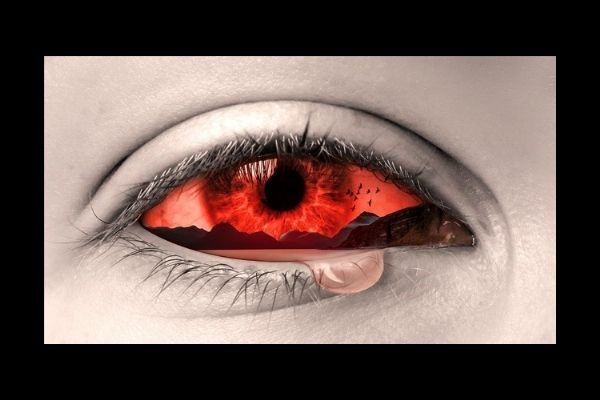
Today guest blogger Dorothy Skarles, shares her thoughts on bereavement. Welcome Dorothy!
Mourning Tears
Going through a very old quotation book in prose and poetry from the greatest writers, ancient and modern, I spotted this verse written by Richard Monckton Milnes to Myrzha.
“He who for love hath undergone
The worst that can befall,
Is happier thousandfold
Than on who never loved at all.”
As I read these four lines, I began to accept the reality of my loss, and realized that love truly makes the world go round so I could love back.
In a bereavement group, they tell you that you must express your feelings in order to get on with your life.
And guess what? Talking to strangers who are experiencing the same loss and grief does make you feel better, even when at first, you don’t believe it will.
After all, taking two aspirin doesn’t make your feelings go away, and the prescribed tranquilizer only makes you feel worse. How could a bereavement group help ease your pain or make it go away?
The pendulum between a man and a woman in bereavement is a mile wide when it comes to talking and trying to heal over the death of a loved one.
From my observation, men say very little about how they feel. The most they will reveal is what their spouse died from—”My wife died of cancer” or “I took care of her.” And if they get upset, they just get up and leave and never to come back.
Out of six men in the group, only one remains. At the age of forty-five, he lost his fiance a month before the wedding, and eight months have passed since she died in her sleep next to him. He acknowledges her death, but what he doesn’t accept are friends and work buddies who always ask, “How are you?”
His answer always is, “Fine. Just fine,” and he quickly walks away. But what he really wants to say is, “How the friggin do you think I feel?”
Then there are the buddies who want to set him up with someone else, and he just shakes his head when he hears, “Hey, I have a sister-in-law who’s divorced. I’ll introduce you.”
It is hard for him to cope, and he thinks that his friends should know how he feels.
Women in the bereavement group are different. They will talk, cry, and open up. And they will stay in the group for at least three or four months before leaving.
Some women however, say they didn’t cry at first because they had to take care of too many things. Like the woman who finally came to a bereavement group after being a widow for thirty years, a status that left her feeling abandoned while having to work, and raise three small children alone, and than caring for their children.
Now all she hears is, “Mom, join the garden club, make friends, get out and do something.”
Suddenly, her children don’t need her, and she feels as if she gave up her own life to take care of them. She says she grieves not only for the loss of her husband, but now for herself. A grief that her children don’t understand.
Her anger, and blame may be unreasonable, but her tears are for growing old alone, and feeling less than whole.
I have learned from the support group that grief for a loved one is an inescapable pathway through a maze of “mourning tears.” The first small steps taken toward recovery that leads the way to a new life, and a new beginning.
daskarles 2011
Thank you, Dorothy.


It is said time heals all wounds. I'm no so sure that's true. It depends on the individual. My godmother, has been a widow for close to 30yrs. She was fairly young when her husband died, and left her with 2 daughters to take care of. She concentrated on that, and now says she has no regrets. She gets lonely, but as she put it. 'I don't have to think about anyone but myself, without worrying about cleaning up after a man.' She says she often has conversations with her husband still, especially during difficult times.
From what I hear Lee, that loved ones left behind often have so much to take care off in their own life, (children, business, work) they have to remain strong to get through it all. Time doesn't really heal, but as you go on, and months and months go by it does lessen the hurt, but you still never forget.
Hi Dorothy,
I have a dear friend who is a recent widower? What do you say, when you too loved the lost spouse? How does one 'include' a single in a social situation, when the 'single' is not only mourning, but not sure if they want to 'mingle' again? Your thoughts appreciated. Thanks. bernadine
Dear Bernadine, never give up on the single person. Invite them to a family dinner, or any holiday get-to-gather, Go out to lunch or the show. Call often and just talk. These are the things you should do to help your friend so they know they haven't been forgotten.
Thank you Dorothy for your words. It has helped me gain some insight into my dear sister's life as a widow for nearly 3 years.
Thank you for telling me Cath. That is why I started to tell what happens to you when you lose some one close to you. No one really understands if it didn't happen to them. In bereavement I found out that almost every person that lost a spouse went through similar things–forgetting, not eating or cooking, crying and more. And you start to understand that you are not going out of your mind because others are doing it too. I also found out that these symptoms can last 5,6,7 or more years. Now thats the pits.